JournalismPakistan.com | Published August 04, 2012 | Qazi Asif
Join our WhatsApp channel
KARACHI: The United States has plenty of respect for Pakistan’s media and journalists. While on an extended work trip to the US, I had the opportunity to meet many journalists there and the majority of them were full of praise for their Pakistani counterparts.
There were some reservations too about the role of a section of Pakistan’s media perceived as supporting extremism and militant elements.
To get a better perspective of how the media and journalists in the US view their Pakistani counterparts and their role in disseminating information, I sought the opinion of Karen DeYoung, Associate Editor and Senior National Security Correspondent for The Washington Post.
DeYoung has been journalist with The Washington Post since 1975 and has held numerous leadership positions at the paper. She also has experience of reporting from Pakistan and Afghanistan.
Lauding the efforts of the Pakistani media, she said: “I love the Pakistani media. American journalists say Pakistani journalists are good sources for the US media and are hard workers.”
She did have one complaint though. “American journalists are not allowed to go to Balochistan. The Pakistani government also does not allow us access to Peshawar and Lahore,” she said.
During our discussion DeYoung noted even though the US government had supported military governments in Pakistan in the past as dictated by prevailing government policy, American media had remained divided on the issue.
News and editorial teams also had totally opposing viewpoints on the issue as most newsrooms were of the opinion that army dictators should not be supported, but editorial sections always managed to find support for them.
“We did not agree to support Gen Zia and showed lack of foresight in supporting other military dictators in Pakistan as well. This was also the case when our editorial section decided it prudent to support Gen Zia and Gen Pervez Musharraf.”
DeYoung said there also existed an ongoing debate about the legal justification of drone strikes in Pakistan.
“There has been a long disagreement over drone strikes, which is difficult to explain to the public. The Pentagon says it is not involved. The CIA takes a public position that the program doesn’t exist. The Pakistani government says that the US seeks permission for drone attacks from them. Pakistan says the agreement between the countries has not been upheld by the US but the US claims otherwise. There has to be responsible clarity on the issue.”
(The writer is a journalist and electronic media trainer associated with Waqt TV)
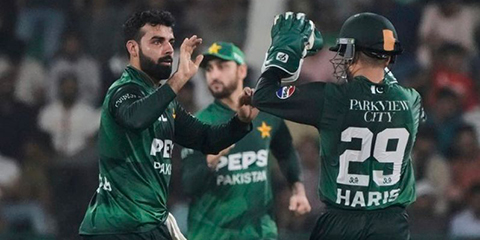
June 11, 2025: Pakistan celebrated a narrow win over Bangladesh, but beneath the jubilation lies a deeper crisis—from sidelined veterans to a collapsing domestic structure—signaling an urgent need for cricket reform.
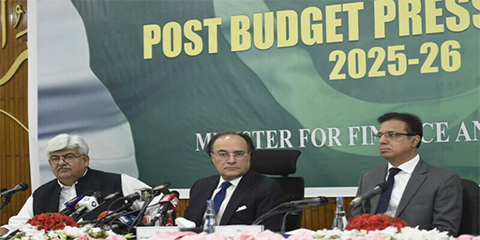
June 11, 2025: Journalists walked out of the post-budget press conference in Islamabad to protest the absence of a technical briefing and the government's dismissive behavior, calling it unacceptable and intolerable.
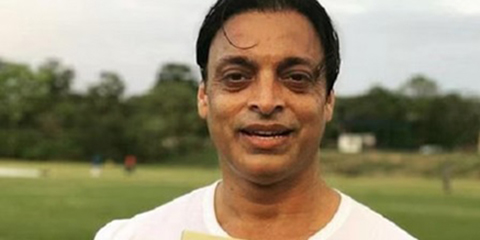
May 31, 2025: Dr. Nauman Niaz has issued a defamation notice to Shoaib Akhtar over derogatory remarks made during a recent broadcast, reigniting a longstanding media feud between the two prominent figures in Pakistan.

May 30, 2025: The Human Rights Commission of Pakistan has demanded the full repeal of PECA, citing its vague language, coercive powers, and threats to free speech and digital rights in Pakistan.
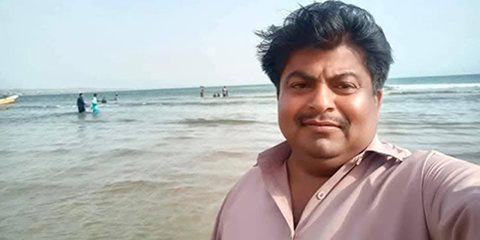
May 30, 2025: The Pakistan Federal Union of Journalists (PFUJ) has condemned the murder of journalist Syed Mohammed Shah in Jacobabad, calling for urgent justice and improved safety for media professionals in Sindh.

May 26, 2025: In Rawalpindi, police allegedly side with Jang Group to block 66 reinstated employees from resuming work despite court orders, drawing sharp criticism from unions and press freedom advocates.

May 25, 2025: PFUJ condemns the Jang Group's decision to dismiss over 80 employees in Rawalpindi, calling it an 'economic massacre.' The union warns of nationwide protests if workers are not reinstated.
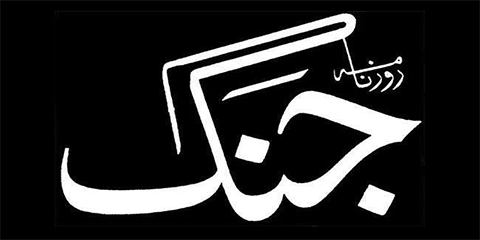
May 25, 2025: Daily Jang Rawalpindi has terminated over 80 employees, including female staff, despite multiple court rulings in their favor—raising concerns over labor rights violations and misuse of authority in Pakistani media.
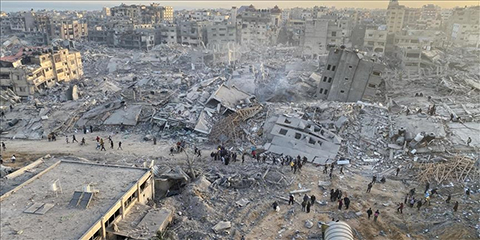
May 19, 2025 PJS reports 219 Palestinian journalists killed in Israeli attacks since October 7, with 30 women among the victims. Over 430 were injured and 685 family members were killed. Read more on the systematic targeting of media in Gaza.

May 15, 2025 Discover the legacy of Samiullah Khan, Pakistan’s legendary "Flying Horse," whose breathtaking speed and artistry redefined hockey. From Olympic glory to World Cup triumphs, his story is one of myth, movement, and magic.
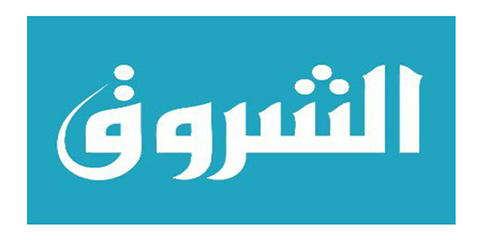
May 04, 2025 Algerian authorities suspend Echorouk News TV for 10 days after it used a racist slur against African migrants. ANIRA demands an apology, calling it a violation of human dignity.

May 04, 2025 NCHR and MMfD launch a journalism fellowship to train reporters on digital rights & gender inclusion in Pakistan. Supported by UNESCO, this initiative aims to bridge the gender digital divide. Apply by May 15, 2025!
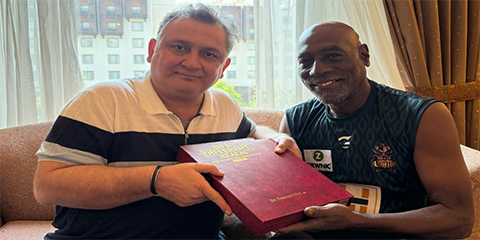
April 23, 2025 Discover Dr. Nauman Niaz’s In A Different Realm: Story of Quadruple & Triple Centuries 1876–2025, a profound exploration of cricket's most monumental innings, blending historical analysis with poetic narrative.